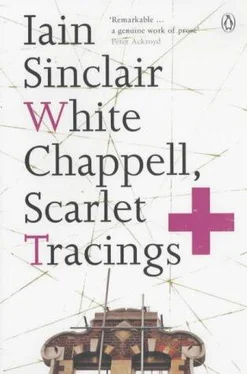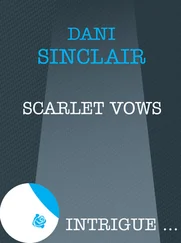The rector filled his hat with stones. Not caring whether he bruised the straw, he dug the brim in among the flints, pebbles and broken bricks. William watched him: his eyes on the Rector’s eyes, a hawk-like disinterest. The Rector, satisfied, held out the hat at arm’s length, an offering.
‘Seventy-three!’
The boy had done it once more: replied before the question could be put.
Mr Harrison was not sanguine, could not stand against this certainty, the unencumbered act of will. How could he speak? The boy gave answers to questions he had not yet adequately framed; the necessity of asking anything at all faded; Mr Harrison twitched into silence, his goitre bobbing. But his rational, restless, measuring mind needed always to check: even on what no longer was; not understanding that the answer cancelled the question.
Rings smoothed the bland waters, running back into the dropped pebble. A hole, invisibly sealed.
Mr Harrison could not simply shake out the stones to count them, they would be lost among their innumerable brothers. He started to count, stuffing his jacket pockets, then his waistcoat, his trousers: he bulged, misshapen, a lumpy shining gentleman holding out an empty hat, a beggar.
The count had gone.
His collar rubbed against his neck, which seemed to have swollen, horribly, puffed with blood. His underclothes clung to him. Discomfort was the condition with which he was most comfortable. He understood the question the boy was now forcing him to answer: how many stones are left upon the small beach?
He could fetch ropes, perhaps summon the gardener’s son, divide the area into squares, bring buckets, perhaps some sort of weighing machine could be rigged — but the ground was uneven, the tide would bring in more stones, children from the cottages could throw them into the water: he choked, he clutched at his throat, convulsive panic.
William rested his back on one of the stout black timbers of the quay, face to the mere, right hand upon the heart-bird, slowing it, holding back its reckless expenditure of time.
The jagged base of a porter bottle lay in the mud of the foreshore, catching the light. He would fire it by the force of his will, he would melt it. He saw a pattern of flame in the depths of the green, a fret; broke away, consciously. If it could be done then he did not need to do it.
‘I have found a s-sign…’ declaimed the Rector, his meat breath upon the boy’s neck, wildly quoting, already knowing that the rest of the quotation was slipping away from him. ‘A s-s-s-sign…’
It was his theory that a programme of education could only work if it be rooted in observation, mensuration, practical tests: and if the responses were kept alive, stimulated, by rapidly moving through all the disciplines, stitching them together, the whole man, healthy body; so that he would abruptly, violently, quote from the Bard, the Good Book, while William watched the birds turn, a great hand, out over the estuary, the unravelling of a dark hat.
William spoke to his fist. ‘… And now I have lost it. Let us leave the boat on the bank and go.’
They went; Mr Harrison striding, stick in hand, white jacket, shoulder bag, listing everything, seeing nothing. The solid dark-jacketed youth always a few yards behind, heavy lids, snail eyes; his answers dragging out more fractured questions, until the Rector was done with, bodily exhaustion, breathless, ready only for the window seat, sherry wine.
They would walk for many hours, lapwing and swift, endlessly following the ragged disorder of the shoreline; stamp through the stiff grass, sometimes with a ditch beside them, hare and coypu, sometimes with a clear sight of water, the light-sucking mud; seeming to go back as often as forward, if there was a distinction, if there was anywhere to go forward to.
Beyond the quay at Kirby they met with a party of inbred and dwarfish sportsmen, guns at their feet, cattle-faced, drooling: powerful in shoulder and wrist. Unhurried, going nowhere, hands in pockets, looking out over the Twizzle; the far-off hammering of wings, the diving wheeling bird-cloud. The guns drawing in the prey; a clatter of iron filings from hollow chalky teeth.
And now as they approached the Wade, Harrison saw that somehow William had got ahead of him and was waiting at the crossing place.
The boy stands beside the long pole, sea-cross, that marks the track over to Horsey Island: the tide is coming in, the mud barely covered, but the walk is treacherous, the bubbling black ooze soon reaching over the boots, slowing, stopping the walker, who hesitates, both shores retreating, the tide now racing, deep pools on either side.
William breathes out from his mouth, slowly, a lance of hot breath; his hand on the wooden post. Breathes, blows. Across the rush of the tide, undisturbed. Out. Out of him. So slowly. The tongue of breath. Blows darkness into the lowest leaves of a solitary tree standing above the shoreline of Horsey. The tree fills, the breath rushing, unforced. The darkness of the space between the leaves closes, joins, seals the immaterial detail. Sustained: Gull’s breath describes the face in the tree, takes darkness from it. There is a tunnel from the boy’s mouth to the outer limits of the shore; everything else is gone.
A figure is standing on Horsey. There is an unshaped black figure at the side of the tree.
William Gull sees : he is looking from Horsey back across the tidal reach, across the water, at the effigies of Mr Harrison and the boy, William Gull, himself, his hand upon the post of the sea-cross. He rubs the flame in his hand, feeling a splinter drive under his nail, a memory of pain.
To: Sarah Hinton
123 Whitechapel High Street
October, 1838
My dear Sarah,
You chastise me for my incontinence of expression, you call me ‘whirlwind’, you say that I tell you all things but those with which you most urgently charge me. You say that my manner is, at once, vague, abstracted, preoccupied — and ‘startling’, that I am too sudden, too harsh in manner. My dear Sister, I think you must choose your stick with greater care before you beat me.
You compliment me on looking like a scarecrow, a fairground dummy, its clothes flung upon its back. Nothing fits, I grow in such starts. I wake and my arms are hanging from the bed. I sit; my legs crawl out from beneath the bench. My shoulders spread in the afternoon, my head swells at night. How should I equip a wardrobe to suit such a changeling?
And yet, and yet, all that you say has justice, guilty as charged; but I am not wholly sorry for it. This is to describe a river by the rubbish found along the foreshore, to anathematise the moon because a few benighted souls run mad from its tides, baying in the streets for red blood. I go too far: as always, you reply!
What then of my duties? Yes, I have come to them at last! I sit at the Temple gate and have the working of a fine brazen monster that swallows up coin, devours paper, most heartlessly, returning little for much. I am, in short, a cashier! I have a place in the world, not yet a significant one, but I am truly resolute, urgent — where no urgency is required. I sit at the door and the daylight runs from me.
We are a Christian oasis, half-forgotten, by the caravans of the big bright world. Mr Dyer, woollen-draper, is a sober, upright and respectable man of business. To say that is to say all. He has, I swear it, no secret life, no life of the soul. His only levity before us, his dependants, is habitual, and thus — meaningless. As he enters the premises he looks around and finding us all, always, in our accustomed places, and at the appointed hour, he removes his gloves, opens a drawer and declaims: ‘Observe the dyer’s hand!’ A quotation, I suppose. Of course, we are bound to observe anything and everything — but that smooth white horror. He then steps into an inner sanctum; we see him no more.
Читать дальше












